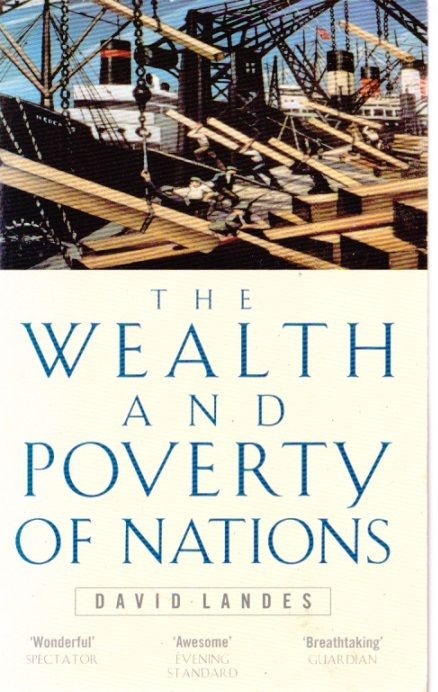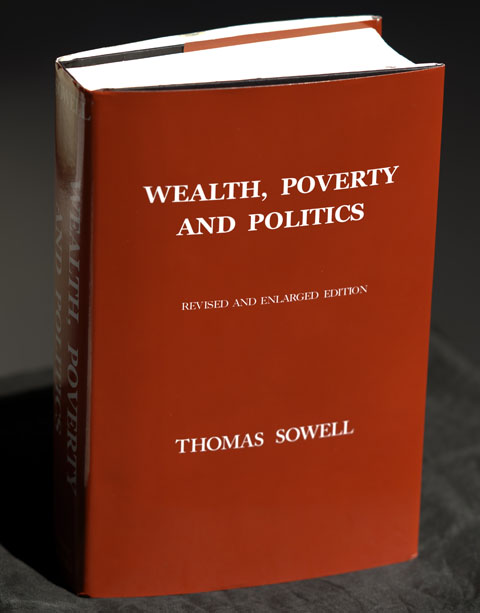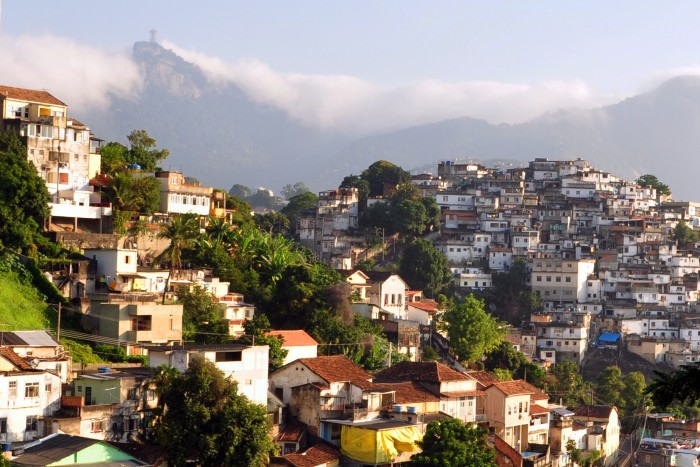
American essayist and novelist William Styron once said that “A great book should leave you with many experiences, and slightly exhausted at the end.” If we judge the late David Landes’ ‘Wealth and Poverty of Nations’ by this criterion, it most certainly fits the bill of a ‘great book’. It is a majestic display of his deep insight and vast knowledge of global economic history. It comes as no surprise, therefore, that the book has been all but universally acclaimed by literary critics.
David Landes was Professor of History and Emeritus Professor of Economics at Harvard University. His other works include Bankers and Pashas, Revolution in Time, The Unbound Prometheus and Dynasties. As one might expect, therefore, ‘Wealth and Poverty of Nations’ is no short and easy read: half a millennia of global economic history are covered in over 600 pages and 29 chapters.
Landes’ primary aim in the book is to better understand how nations have evolved to reach their current state. Landes’ main thesis of the book is that cultural traits and cultural values play a key role in determining whether a country fails or succeeds economically. As he points out in the Preface, the analysis is not one of a “multicultural, anthropological sense of intrinsic parity: all peoples are equal and the historian tries to attend to them all. Rather, [to]…understand how we have come to where we are, …[through] making, getting, and spending” (page xi).
In this sense, ‘The Wealth and Poverty of Nations’ provides a fascinating and distinctive historical angle that considers the cultural circumstances, as well as the economic trends of the time – thus, viewing economic history through a cultural lens.
Landes opens up the discussion with the premise that the old dichotomy of the West vs. the East, or better said, West vs. the ‘Rest’ has largely dissolved (page xx). The more pertinent split in today’s ‘globalised’ world is between ‘Rich’ vs ‘Poor’ countries. The common thread of questioning that is present throughout the entirety of the book is this: why have some countries come to be so poor and some so rich?
In the opening chapters Landes presses the idea that the technological and cultural advancements enabled the (relatively small) nations of western Europe to significantly punch above their weight (page 137). The Industrial Revolution in Europe brought technological innovations that had tremendous long-term impact on economic development. Basic advancements cotton manufacturing for instance, enabled the creation ‘washable’ clothes. This in turn led to better personal hygiene and therefore, better health and an increase in life expectancy. The technological advancements improved all areas of life in the Continent
Landes also points out that throughout the late 17th Century and 18th Century, England’s relative open society enabled it to flourish at a faster pace than its European counterparts, many of whom were deeply embattled with religious persecution (page 223). As a result, England managed to ‘profit from other nation’s self-inflicted wounds’ (ibid).
Yet arguably one of the most powerful and convincing arguments of the book is raised in Chapter 12 (page 175 – 181). Here David Landes reinstates Max Weber’s thesis on the Protestant work ethic. The core argument here is that the Protestant revolution in Europe brought with in a change in the role and responsibility of work. The influence of Protestant thinking encouraged people to value, creativity, hard work, timeliness, and free-thinking. This in turn acted as a catalyst for economic growth not only in Europe, but also in the early development of America (CEME’s Director, Richard Turnbull, wrote on the impact of Quakers in Quaker Capitalsim: Lessons for Today)
The latter half of the book bring the discussion back to the impact of culture on economic performance and how the two are intrinsically linked. In Thailand for example, young men are encouraged to spend a few years in religious (Buddhist) monasteries before entering the world of work. Landes argues that this sets their priorities right – and makes them more effective once the do enter the ‘materialistic’ world of work, where money plays a major role (page 517).
Landes concludes the book with a discussion on the current tensions between globalisation and the nation-state, but also the merits of free-trade and some of the benefits and dangers of international aid (Page 519-521). In a nutshell (and without giving too much away), the book argues that free trade between nations is disproportionately beneficial and foreign aid can do as much damage as it does good. Landes overarching conclusion is that the adoption of a free market economy (especially by poor countries) is the surest and safest way to long-term economic development and wealth creation.
‘The Wealth and Poverty of Nations’ leaves its reader with a completely new, and unique understanding of the role that culture plays in the historic economic development of countries. Finding criticism for this book is a challenge in itself, I have found myself nit-picking at best. One possible observation is that, even in 600+ pages, it remains difficult to comprehensively capture half a millennia of world history.
Some may say that it is too Eurocentric. Yet the book’s apparent Eurocentrism is part of the presentation and hypothesis that is put fourth – it is the angle that the author adopts rather than an inherit bias. In response to this perceived ‘Eurocentrism’ and being a ‘Westerner’, Landes himself acknowledges that, “I feel surer of my ground” (page xxi). Nonetheless, one could argue that the cultural intricacies of each geographical region can, and deserve to be explored in greater depth.
‘The Wealth and Poverty of Nations’ has become a staple in the field of economic history.
A definite read.
“The Wealth and Poverty of Nations” was published in 1999 by Abacus, ISBN-10: 0349111669, 672pp.
 Andrei Rogobete is a Research Fellow with the Centre for Enterprise, Markets & Ethics. For more information about Andrei please click here.
Andrei Rogobete is a Research Fellow with the Centre for Enterprise, Markets & Ethics. For more information about Andrei please click here.

How much of modern Western social and economic policy is based on properly interpreted factual evidence and how much on unexamined assumptions and ideology? In Wealth, Poverty and Politics, Thomas Sowell, the venerable Senior Fellow at the Hoover Institution at Stanford University, sets out to demonstrate that rather more than is healthy is based on the latter.
Sowell divides opinion. He shuns labels but he is a hero of those on the right who favour small government and free market policies. Conversely, he is castigated as a villain by those on the left, although since he is black and was brought up in poverty in North Carolina in the days of segregation, he is a rather unusual villain!
Wealth, Poverty and Politics is unlikely to lessen this division of opinion. It largely repeats things that Sowell has been saying for decades and sets out to slay a number of liberal sacred cows, ranging from affirmative action, through the welfare state to foreign aid.
Sowell’s starting proposition is that, because the humanitarian goals underlying many policy proposals are important, “it is crucial that these proposals be based on an understanding of the actual facts about the causes and consequences of economic inequalities” (page v). He then considers the role of geography, cultural factors, social factors and political factors, recognising that they overlap and interact with one another .
At a high level of generality, all of this is unexceptional. It is when Sowell begins to consider its implications that the radical nature of what he is saying becomes clear. He takes issue with those who start with the premise that “the poor are poor because they are exploited by the rich” (page 257), a view that he demonstrates failed to die when Communism collapsed a generation ago. He takes issue with those, such as Professor Angus Deaton and the late Professor John Rawls, who equate equal prospects of success with equal opportunity, suggesting that Angus Deaton’s statement that there would be no correlation between the earnings of parents and their children in a society with perfect equality of opportunity “is in defiance of both heredity and environment” (page 180). He points out that, even in a society with perfect equality of opportunity, the factors that he identifies are likely to prevent an equality of outcomes.
Specifically, he points out that all cultures are not of equal economic value: “different groups living in the same external environment can have very different productivity if their internal cultural values produce very different priorities as to what they want to do, and at what sacrifices of other things” (page 97). He draws attention to differences in attitudes to learning (provocatively noting that, in the USA black parents in the highest socio-economic quintile have slightly fewer books in their homes than white parents in the lowest socio-economic quintile), differences in attitudes to work (noting that whole societies, such as Spain in the 16th to 18th centuries and the Southern States of the USA until recent times, have regarded work as degrading) and differences in ambition (noting that some social groups, including some white groups in the UK, lack ambition). Perhaps most controversially of all, he suggests that some groups have greater mental capacity than others, although he is careful to stress that the evidence suggests that this is not to do with genetic pre-conditioning but cultural and social factors.
Sowell suggests that “the ultimate wealth of a society does not consist of its tangible output, as such, but the ability – the human capital – to produce that tangible output” (page 413) and that the failure to recognise this leads policy in the wrong direction: efforts to advance economically lagging groups should be directed not so much at correcting society and its institutions as “getting members of lagging groups to reorientate themselves towards acquiring more human capital” (page 181). This is perhaps best summed up in Henry Hazlitt’s statement that “The real problem of poverty is not a problem of distribution but of production” (page 8).
On this basis, Sowell attacks modern liberal economic and social policy. He lays into US welfare policy, suggesting that it produces counter-productive lifestyles that reduce the need to develop essential human capital and that “having promised progress towards ‘social justice’” it has “delivered instead retrogressions towards barbarism” (page 305). Foreign aid, affirmative action and identity politics are dealt with in a similarly robust manner (e.g. he suggests that multi-culturalism “has often been carried to the point of encouraging lagging groups to proudly cling to their own culture, or even resurrect it in some cases, with little concern that these groups’ economic and educational lacks might be – at least in part – a result of the cultures that they were being encouraged to cling to”, page 166).
Wealth, Poverty and Politics has significant defects. Its argument does not develop in a clear linear manner and it would benefit from severe editing, since many points are made on more than one occasion and some on multiple occasions (e.g. Sowell’s point regarding the lower I.Q.’s of mountain based people). It would also benefit from the inclusion of positive suggestions for policy that interact with the moral issues raised by poverty.
These issues are annoying but Sowell writes in an engaging manner. He has a penchant for quotable quotes and, more importantly, an ability to provide thought provoking illustrations of the points that he is making drawn from a variety of different places around the world and a variety of different periods and contexts in the past 1000 years. This results in interesting comparisons (e.g. between some black communities in the USA and low-income white communities in the UK and between early modern Spain and the contemporary Middle East). Furthermore, his use of statistics is sufficient to back up his arguments without overwhelming the reader and the addition of a number of personal anecdotes adds a human dimension.
The result is a readable book aimed at the intelligent non-specialist that raises issues of critical importance in the West today. Many on the left will want to take issue with what Sowell says but they will need to demonstrate why he is wrong. Many on the right will agree with much of what is said but even they will need to ask themselves whether their policy prescriptions might be counter-productive.
The revised and expanded edition of “Wealth, Poverty and Politics” was published in 2016 by Basic Books (ISBN-10:0465096763). 565 pp.
 Richard Godden is a Lawyer and has been a Partner with Linklaters for over 25 years during which time he has advised on a wide range of transactions and issues in various parts of the world.
Richard Godden is a Lawyer and has been a Partner with Linklaters for over 25 years during which time he has advised on a wide range of transactions and issues in various parts of the world.
Richard’s experience includes his time as Secretary at the UK Takeover Panel and a secondment to Linklaters’ Hong Kong office. He also served as Global Head of Client Sectors, responsible for Linklaters’ industry sector groups, and was a member of the Global Executive Committee.

I am passing through Rio de Janeiro en route to Belo Horizonte to attend the XXV World Congress of UNIAPAC (The International Christian Union of Business Executives) on the theme of “Business, Government and civil society working together for the common good.”
This is my first visit to South America and Rio has presented me with a capitalist conundrum.
What a great city. The beach at Copacabana is wonderful (well, it looks marvellous, I have not yet had opportunity to explore!). The setting, the mountains, the water, the statue of Christ the Redeemer are exceeded only by the friendliness of the people.
I know well that many cities and metro areas like Rio throughout the Americas and Africa present contrasts and poverty and wealth mingle together. My driver took me past large swathes of ‘shanty town’ like housing. It was not that I have never seen anything like it before (I have visited Cape Town in the past), but the capitalist conundrum struck me again.
The quality of the housing was shambolic. Half-built buildings, many exposed to the elements, seemingly built one on top of the other stretching back from the highway into the hilly areas behind. The conundrum is this. Almost all had satellite dishes and air-conditioning units. So on the one hand there seems to be poverty (at least as represented by poor housing) and on the other the poor exercising consumer choices in a capitalist economy that would reflect many more affluent priorities.
Are these apparently irreconcilable priorities reconcilable? Can capitalism provide a solution to the poverty of housing and indeed poverty more generally as well as providing such consumer choice?
Here are a few thoughts:
The problems which I think arise are when wages are so low they are unable to sustain the basic infrastructure (housing) yet provide some opportunity for consumer choice. I cannot believe how cheap the taxi fares are.
According to the Economist Brazil is in a hole and still digging. One of the largest economies in the world has seen GDP contract, deficits grow and government corruption is rife. A country the size of Brazil, of course, and in its regional setting, faces many difficulties of environmental issues, inclusion and so on. The 2016 Olympics is seeing significant infrastructure investment, though, once again, government corruption damages the inclusivity of the growth which is generated. All of these things are likely to enhance the capitalist conundrum rather than solve it.
Capitalism does lead to some unintended consequences. I am not one who believes that equality per se is necessarily a desirable objective; but poverty (in absolute terms) surely cannot be acceptable to any decent human being? Yet, a market economy built upon ethical principles can be the solution to many of these problems.
Capitalism generates conundrums. Long live capitalism. Oh, but take poverty seriously and let’s use our business and economic opportunities to help.

Dr Richard Turnbull is the Director of the Centre for Enterprise, Markets & Ethics (CEME). For more information about Richard please click here.